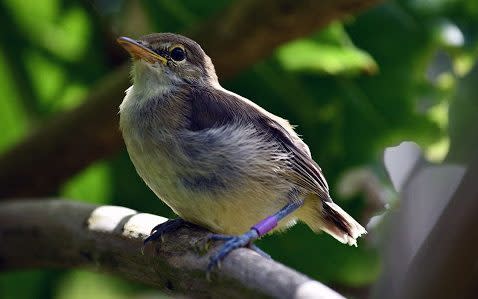Young birds with old parents fare better if they have 'babysitters', scientists find

Young birds with older parents fare better if they have 'babysitters', scientists have found, as they say it may be the secret as to why humans thrive better in groups.
Seychelles Warblers babysit each other just like humans do, scientists at the University of East Anglia found.
The study, published in Evolution Letters, found that the care of babies was shared between parents and younger helpers.
This meant that when elderly birds were less able to care for their young, the babies still survived. It also could have helped the social behaviour in family groups with older parents, the scientists said.
The researchers added that the findings explain why social species, such as humans, often do better if they live in groups and cooperate to raise offspring.
Scientists monitored the behaviour of the little songbirds over 30 years, to see how their behaviour changed.
Prof David S Richardson, from UEA's School of Biological Sciences, is senior author of the paper. He said: "In many animal species, offspring from ageing parents do not survive as well as offspring from younger parents.
"The cooperative nature of Seychelles warblers means care for offspring is often shared between the dominant breeding pair and a variable number of adult subordinate helpers that help with various aspects of rearing, including providing food for the offspring.
"The amount of care that dominant breeders provide is reduced when they are assisted by helpers and this lower parental investment can improve the parents own survival and future reproductive output."
The chances of survival of baby birds declines progressively with age of the mother bird, the study found, but these declines are mitigated when helpers are present.
